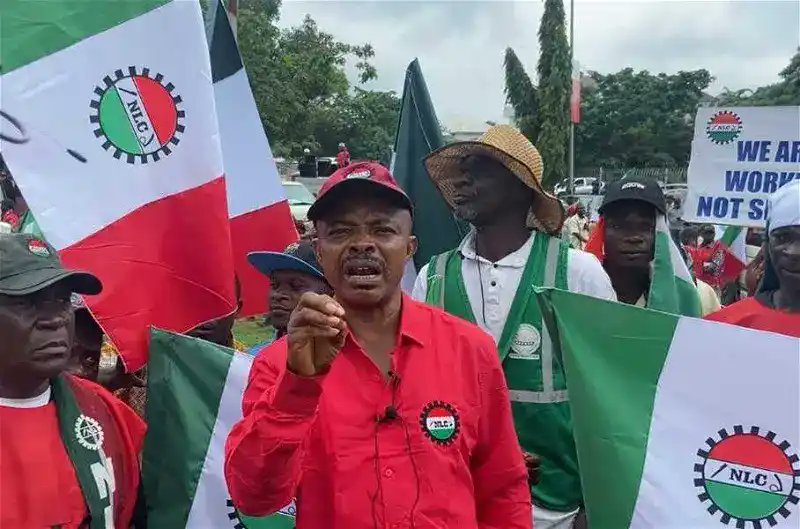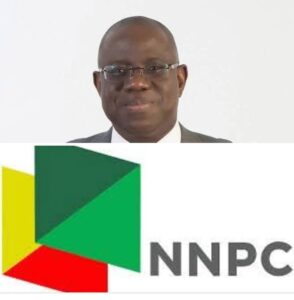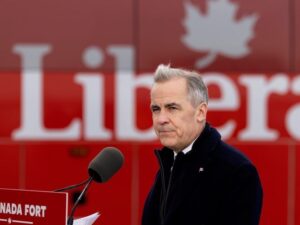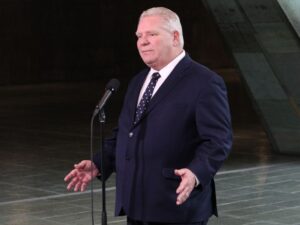
The Nigeria Labour Congress, NLC, has slammed the Organised Private Sector, OPS, over its opposition to a nationwide strike on the grounds that the economy cannot withstand country-wide industrial action now.
It said that the OPS was opposing the strike because it wanted to continue paying slave wages to workers.
Also, the NLC alleged that some groups suspected to be agents of the government were planning to sabotage the ongoing struggle for palliatives to cushion the negative effects of subsidy removal on petrol.
An impeccable source told Vanguard, yesterday, that the government was working hard to use some members of the union and some associations to discredit the struggle with the argument that any strike embarked upon by labour would worsen the economic situation.
The source also said that some of the associations from the organized private sector had resorted to taking laughable positions because they were afraid that they might be bound to implement any position the government would take that would favour workers.
Asked what could be the possible outcome of the NEC meeting tomorrow, the source said: “It’s difficult to predict what will be the outcome of NEC because the government is using more time creating division and sabotaging the struggle, instead of using the same time and energy to solve the problems at hand.
“They are creating more time using all manner of tactics on those who will attack and oppose the NLC leadership and those who will say the leadership is on its own.
“The issue is that the worker on the street, the worker in the factory is being hurt by the economic hardship and so many of them cannot go to work. You can see the opinion of the government, you can see the manufacturers association, NECA talking because they want to continue to pay slave wages.
“Why have the organized private sector on their own not raised the wages of workers? If they are patriotic, must they wait for the public? Even the public sector raising wages is sending shivers into their spines and they are saying NLC should not take action.
“Should they be talking to the NLC on the pages of newspapers or as stakeholders and employers we should have met to look at all these issues together.
“So those are some of the things the government is doing, getting all these organisations to be saying this strike will affect productivity.
“The governors that are telling people to work for only two or three days in a week, the other days they are not working, does it not affect productivity?”
On whether there is any attempt to use some unions or members of the unions to divide the ranks of the NLC, he said: “The government is even talking to some of the union members.”
Responding to the allegation that the Trade Union Congress, TUC, may have been conquered by the government to work against the NLC, the source who spoke on the conditions of anonymity because he was not permitted to speak on behalf of the Congress said he would not want to use the world conquered because they (TUC) have made their own demands to the government, adding, “we need to wait and find out what the government is doing about the demands.”
He, however, said, “Government is using groups to infiltrate the NLC and swell public opinion against the sufferings of workers.”
Fielding questions on whether the NEC meeting would decide on the date for the commencement of the strike after the expiration of the 21-day ultimatum, he said: “The NEC meeting will decide the next action.
“In most instances, it’s when you report progress that the issue of strike or no strike comes up. So the issue of strike is expected to form part of the NEC discussion. It will consider whether there is anything on the table.”
Further asked whether the government has invited the NLC to a meeting after the last Friday expiration of the 21 ultimatum, the source said, “ There is no invitation from the government on any meeting.”
The Organised Private Sector of Nigeria, OPS, had warned that the economic indicators were not good and the nation could not afford a nationwide strike.
OPS in a statement, yesterday, pleaded with the federal government and Nigeria Labour Congress, NLC, to do everything possible to avoid the strike.
Recall that the 21-day ultimatum by the NLC to embark on an indefinite strike expired on Friday, with the president of the labour movement, Joe Ajaero, saying Congress would meet tomorrow to decide when the indefinite strike would commence.
However, to avert the strike, Vanguard gathered yesterday that the government has again invited leaders of NLC for a meeting today to thrash out issues raised by the union, especially the removal of fuel subsidy and what it described as foisting of anti-people policies on Nigerians.
But the OPS, comprising the Manufacturers Association of Nigeria, MAN; Nigerian Association of Chambers of Commerce, Industries, Mines and Agriculture, NACCIMA; Nigeria Employers Consultative Association, NECA; Nigerian Association of Small and Medium Enterprises, NASME; and Nigerian Association of Small Scale Industrialists, NASSI, tasked government to demonstrate good faith in keeping to its promises during the negotiations and abstain from making promises it didn’t intend to keep.
In the statement, titled “OPSN Position On The NLC Strike,” OPS said: “The view of the OPSN is that of deep concern, if not anxiety. As a matter of fact, the Organised Private Sector of Nigeria, OPSN, is reiterating its call on the federal government and the Labour unions to work assiduously to avert the looming disruption of socio-economic activities in the country.
“The economic indicators are not good and simply put, the economy cannot afford a nationwide strike at this time.
“We have keenly watched the back-and-forth consultations between the government on the one hand and the National Labour Congress, NLC; and Trade Union Congress of Nigeria, TUC, on the other.
‘’It is evident that the series of consultations between the federal government and the labour unions have not yielded positive results and the latter has resolved, in one way or the other, to go ahead with the protest/strike.
“We are worried that adequate consideration is not given to the dire situation of the economy and the devastating/disruptive impact that a nationwide strike will have on the country at this time.
“Look, the government and labour need to understand that our economy is being de-marketed and the livelihood of the average Nigerian is being diminished by this incessant bickering. One is beginning to wonder if the well-being of more than 200 million Nigerians is being factored into their negotiations.








